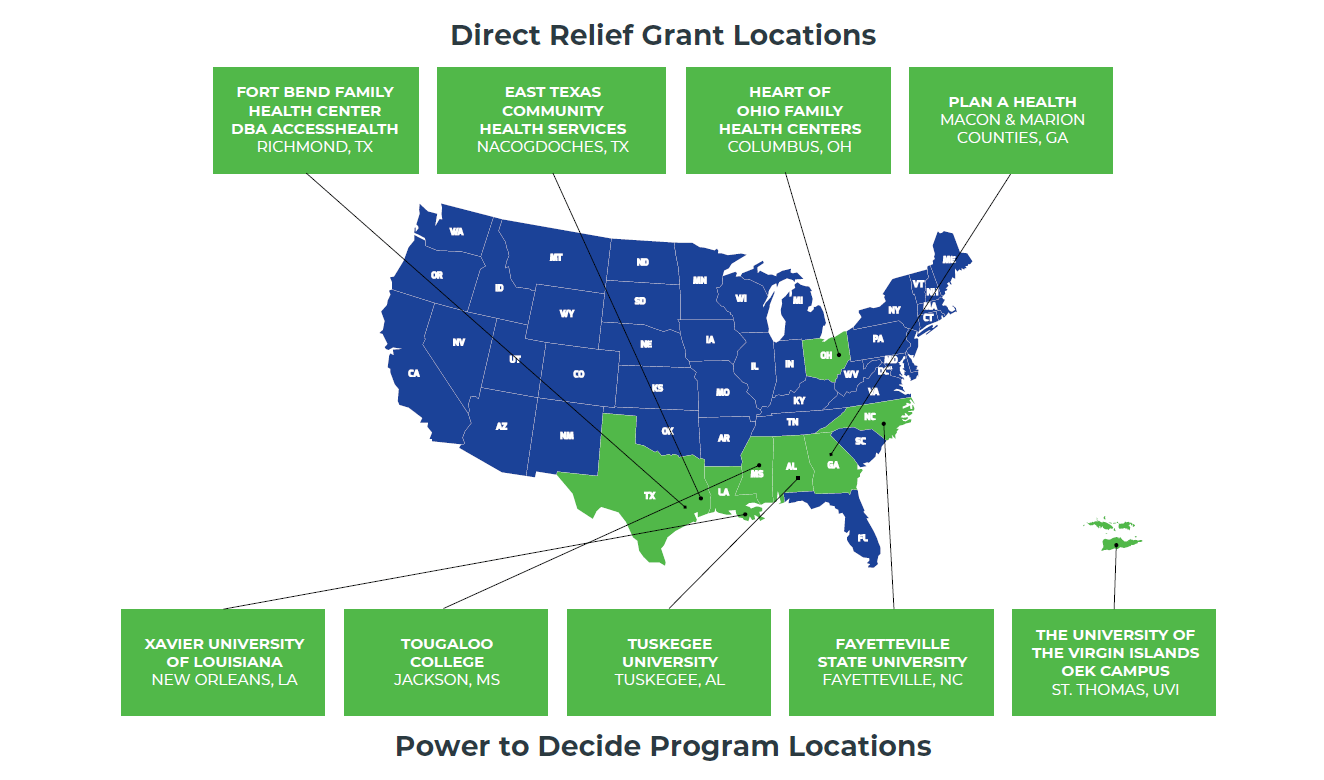
Her Plan is Her Power
Organon’s commitment to reducing unplanned pregnancies
We’re here for her health
Our vision is a better and healthier every day for every woman. We seek to deliver innovative solutions, improve access and expand choice to help address the unmet medical needs of women and improve their lives. We’re here for her health, because we know when she thrives, we all thrive.

Accelerating our progress
Her Plan is Her Power drives community-led responses and collective action to help reduce unplanned pregnancies and empower women and girls so they can plan their future. We have committed to help prevent 120 million unplanned pregnancies worldwide by 2030, and we are nearly halfway toward meeting our goal. Through this 3-year, $30 million investment, we are focused on addressing barriers and inequities that perpetuate unplanned pregnancies in the U.S. and around the world.
The Challenge
The birth rate among teens of color compared to white teens in the U.S.(1)
Of all pregnancies are unplanned, totaling 121 million each year globally.(2)
Women of reproductive age are estimated to live in a U.S. contraceptive desert, where there is a lack of access to a health center that offers a full range of contraceptive methods, according to data from Power to Decide.(3)
Of the 257 million women globally who want to avoid pregnancy are not using any contraceptive method.(4)

Achieving Her Promise
Expanding our partnerships and programs in areas of high unmet need in the U.S.
We are committed to equity and empowerment so women and girls can achieve their promise through:
Innovation
Championing and advancing innovation in contraception access
Education
Increasing awareness so women can make informed decisions about their sexual and reproductive health, including contraceptive options and their correct use
Access
Expanding access to contraceptives through traditional and non-traditional interventions
Advocacy
Working with partner organizations to strengthen healthcare systems via stronger policies, data, capacity and representation of voices of women and girls
Implementing place-based, public health interventions that fuel community-driven solutions in the U.S.:
- 4 Direct Relief clinic grants awarded to community health centers in high-need areas to support local education, program implementation and resourcing needs
- Product donations distributed to Direct Relief’s network of 4,000 community health clinics
- 5 Historically Black College and University (HBCU) campuses reached through a Power to Decide ambassador program to promote a culture of reproductive well-being on campus through student-led peer education and access to safer sex supplies

- Providing access to affordable contraception, education and training in 73 of the lowest income countries around the world through the Her Promise Access Initiative
- Partnering with international grantees to localize responses and deliver resources to empower women and
girls to when it comes to their reproductive health. Read more about our grantees - Supporting a comprehensive partnership with the UNFPA to expand options and resources
to meet the health needs of women, with a particular focus on youth

Progress report
Read about the tangible steps we are taking with partners toward our goal of reducing unplanned pregnancies and creating a healthier future for her.
1 National Vital Statistics Report, Births: Final Data for 2020, 2022 https://www.cdc.gov/nchs/data/nvsr/nvsr70/nvsr70-17.pdf
2 Bearak JM, Popinchalk A, Beavin C, et al. Country-specific estimates of unintended pregnancy and abortion incidence: a global comparative analysis of levels in 2015-2019. BMJ Glob Health. 2022;7(3):e007151. doi:10.1136/bmjgh-2021-007151
3 Power to Decide, Lack of Access = Lack of Power to Decide, 2023 https://powertodecide.org/what-we-do/contraceptive-deserts
4 UN DESA (United Nations Department of Economic and Social Affairs), Population Division, 2021. Website: https://www.un.org/development/desa/pd/data/family-planning-indicators Accessed 16 Jan 2024.